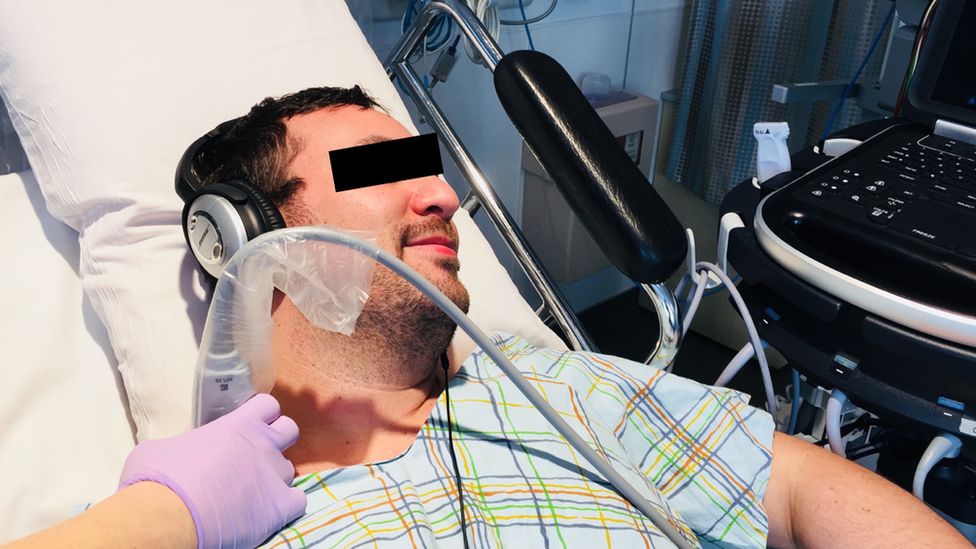Music 'calms nerves before surgery' as well as sedative
- Published

Listening to the "world's most relaxing song" before an operation could be just as good at calming patients' nerves as medication, US researchers say.
The song, written to reduce anxiety, blood pressure and heart rate, performed as well as a sedative in a study of 157 people.
But patients said they would have preferred to choose their own music.
And noise-cancelling headphones made communication harder, doctors said.
The University of Pennsylvania researchers, writing in a BMJ journal, now want to look at whether the type of music and how it is played to patients makes a difference to the results.
The patients in the trial were either given the drug midazolam or played the song Weightless by UK band Marconi Union for three minutes, while having an anaesthetic to numb a region of the body.
Listen to the song below:
Allow YouTube content?
This article contains content provided by Google YouTube. We ask for your permission before anything is loaded, as they may be using cookies and other technologies. You may want to read Google’s cookie policy, external and privacy policy, external before accepting. To view this content choose ‘accept and continue’.
Patient anxiety reduced by the same amount in both groups.
Feeling anxious before surgery can affect recovery because of the stress hormones produced in the body.
'Pleasure pathways'
But drugs that reduce anxiety can have side-effects and need constant monitoring by doctors, the researchers from University of Pennsylvania said.
Music medicine, in contrast, was "virtually harm-free and inexpensive".
Dr Veena Graff, assistant professor of anaesthesiology and critical care from University of Pennsylvania Perelman School of Medicine, said: "Music lights up the emotional area of the brain, the reward system and the pleasure pathways.
"It means patients can be in their own world, they can be comfortable and have full control."
How else is music used in medicine?
Music has been an invaluable tool in medicine for many years.
It has been used during brain surgery, in patients such as Musa and Anna Marie, to monitor brain function.
Musa Manzini: Why I played my guitar during brain surgery
Anna Marie Whitlock Henry played the flute while surgeons operated
Music therapy has helped children such as William, who has autism.
A look at how music therapy helps seven-year-old William cope with his autism
And music can unlock memories and improve the lives of people with dementia.
Vicky McClure's dementia choir is about to perform for the first time
Music can heal, stimulate and soothe the mind and body in many ways - but, as yet, scientists don't properly understand how.
- Published22 January 2019
- Published30 March 2018
- Published2 May 2019
- Published5 February 2018